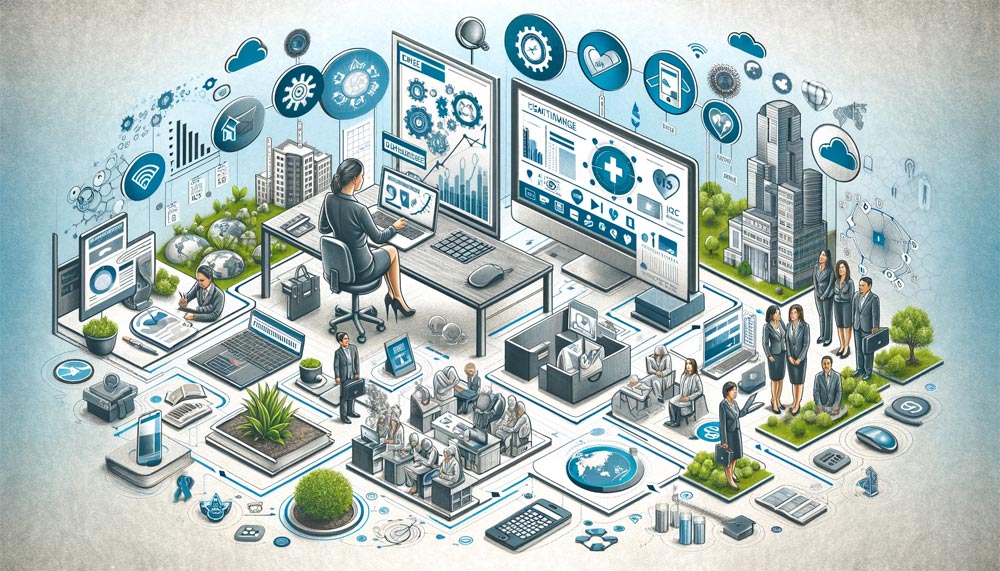
Top 5 ICT Benefits Enhancing Daily Life
In the modern era, Information and Communication Technology (ICT) has become a cornerstone of daily life, transforming how we learn, work, communicate, and access healthcare. With the rapid advancement of digital technology, the impact of ICT spans across various sectors, bringing forth unprecedented benefits. This article delves into the top five advantages of ICT, shedding light on its significant positive effects on education, healthcare, business, communication, and development.
1. Revolutionizing Education
Breaking Geographical Barriers
ICT has democratized education, making learning resources accessible to students regardless of their geographical location. Through online courses and digital libraries, learners can access a wealth of information and knowledge at their fingertips. Platforms like Khan Academy and Coursera are prime examples of how digital technology benefits education by offering courses from institutions around the globe.
Personalized Learning Experiences
Technology in education facilitates personalized learning, allowing students to learn at their own pace and according to their learning style. Adaptive learning software analyzes students' performance to tailor educational content, thereby enhancing the learning experience. This approach has shown to improve engagement and outcomes, making education more effective and inclusive.
2. Transforming Healthcare
Improving Patient Care
The integration of ICT in healthcare has led to significant improvements in patient care and health outcomes. Electronic Health Records (EHRs) provide a comprehensive view of a patient's medical history, enabling healthcare providers to make informed decisions quickly. Moreover, telemedicine has made healthcare more accessible, especially in remote areas, by allowing patients to consult with specialists without the need for travel.
Advancements in Medical Research
ICT has also accelerated medical research by enabling the analysis of vast amounts of data to identify trends, develop new treatments, and improve existing ones. Big data analytics and artificial intelligence are at the forefront of personalized medicine, offering tailored treatment plans based on a patient's genetic makeup and lifestyle.
3. Enhancing Business Efficiency
Streamlining Operations
In the business sector, the advantages of ICT are evident in the streamlining of operations and the enhancement of productivity. Project management tools, Customer Relationship Management (CRM) systems, and Enterprise Resource Planning (ERP) solutions enable organizations to manage their resources more effectively, leading to cost savings and improved customer satisfaction.
Expanding Market Reach
Digital marketing and e-commerce platforms have revolutionized how businesses reach and interact with their customers. Social media, email marketing, and search engine optimization (SEO) are powerful tools for building brand awareness and driving sales, allowing even small businesses to compete on a global stage.
4. Facilitating Communication
Breaking Down Barriers
ICT has broken down communication barriers, making it easier and more affordable for people to connect with friends, family, and colleagues around the world. Email, instant messaging, and video conferencing tools like Zoom and Skype have become essential in both personal and professional contexts, fostering collaboration and strengthening relationships despite physical distances.
Enhancing Information Dissemination
The internet and social media platforms have transformed the way information is disseminated and consumed, enabling individuals to stay informed about global events in real-time. This instant access to information promotes awareness and facilitates informed decision-making on various issues.
5. Driving Development
Empowering Communities
ICT for development has empowered communities by providing access to information, improving education, and creating economic opportunities. Mobile banking and digital payment systems have revolutionized financial inclusion, enabling people in remote areas to access financial services without the need for a physical bank.
Sustainable Development
Digital technology benefits also extend to environmental conservation and sustainability. ICT tools aid in monitoring climate change, managing natural resources more efficiently, and promoting sustainable practices through smart agriculture and energy management systems.
Conclusion
The benefits of ICT to life are profound and far-reaching, touching every aspect of modern society. From revolutionizing education and transforming healthcare to enhancing business efficiency, facilitating communication, and driving development, ICT continues to shape our world in positive and impactful ways. By embracing these technologies, individuals and communities can unlock their full potential, fostering a world that is more connected, informed, and resilient. As we look to the future, the continued innovation and integration of ICT will undoubtedly play a pivotal role in addressing the challenges of our time and paving the way for a brighter, more inclusive tomorrow.
ICT




